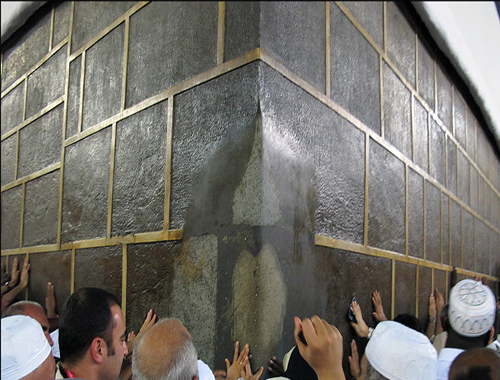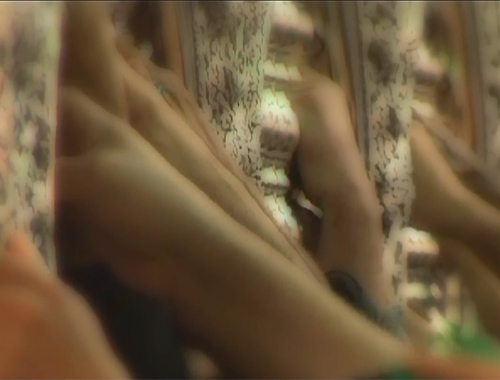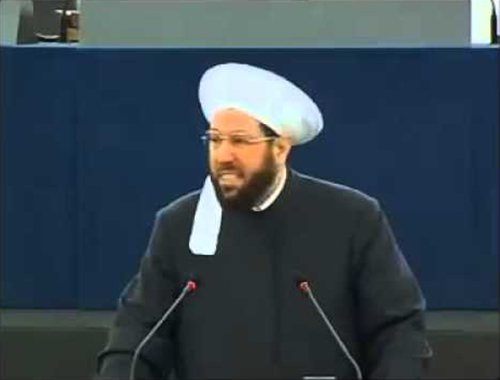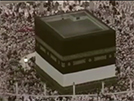Ownership
- Details
- Hits: 3492
Ownership
`This book belongs to Ahmad'. What do you understand from this sentence?
Do you not understand from it that there is a relation between this book and Ahmad on the basis of which he has a right to use it, to keep it for his use, to sell it, to lend it to others and to receive it back from a borrower. This relationship between the book and Ahmad which entitles him to dispose it of and carry it from one place to another is called the bond of ownership.
Kinds of Ownership
There are three kinds of ownership:
(1) Absolute ownership
(2) Public ownership
(3) Private ownership
Absolute ownership
Absolute ownership is that bond which entitles the owner to do whatever he likes with his property without any restriction or restraint.
From the Islamic point of view this kind of ownership belongs to Allah only. He alone can do whatever He likes with all the existing things of this world. He can bring and can take away. He can give life and can take it. He can make ill and can cure. He can give and can take. He can punish and can forgive. And so on and so forth. No external restriction exists in His case, for everything rightly belongs to Him.
The Qur'an says:
"Whatever is in the heavens and the earth belongs to Allah ". (Surah al‑Najm, 53:31).
It may be noted that all the dispensations of Allah have the nature of mercy, bestowal, conferring and granting perfection and not that of using, exploitation or taking advantage. He disposes of what really belongs to Him, for it is He who has brought everything into existence. This world and everything in it belongs to Him and is sustained by Him. Nothing is self‑existing. Hence everything is owned by Him.
The ownership of everyone else, whosoever and whatsoever he may be is only relative, that is of that kind which entitles the owner to deal with his property within the framework fixed for him, without any right of going beyond its limit.
When a man works, exerts himself and earns money, he is recognized to be its owner. But he is not the absolute owner of it. He is only the relative owner of it. He cannot dispose of the money earned by him absolutely according to his will. He cannot throw his money into the sea and that it is his money and hence he can do with it whatever he likes. His right of ownership is limited. For example, he cannot squander and waste it, for that is not a financial proposition.
Public ownership
According to the economic laws of Islam, all natural resources on the land, in the sea and in the space belong to the general public. They cannot be personal property of anyone. The Islamic traditions have described a large number of natural resources as public property.
According to one tradition, a question was put to imam Ja`far al‑Sadiq (P) in this respect.
In reply he said:
"Water‑courses, hills, forests, fallow lands left by their owners, are all public property. Furthermore, there are certain other kinds of wealth which, though not included in natural resources, are from the Islamic point of view, a part of public property, for example, the estate of those deceased persons who leave no heir, goes to public treasury".
Private ownership if you go to the bank of a river and catch a fish by hand, or with a hook or net, it becomes your personal property. Before you caught it anybody could go to the river and catch fish including this particular one. But now as you have caught it, none else has a right to take it. Only you can utilize it. If anybody else utilizes it, he can do so only with your permission. Thus you personally are the owner of it.
Islam respects personal property to a certain extent. The basis of personal property in Islam is the respect of the rights of the individual and his aspiration for free enterprise. Islam wants to give incentive to everyone to work and exert himself to the best of his ability, and to hope for the return of his labour. But while Islam wants that everyone should get the produce of his labour, it does not allow anyone to dominate others and deprive them of the fruits of their labour.











